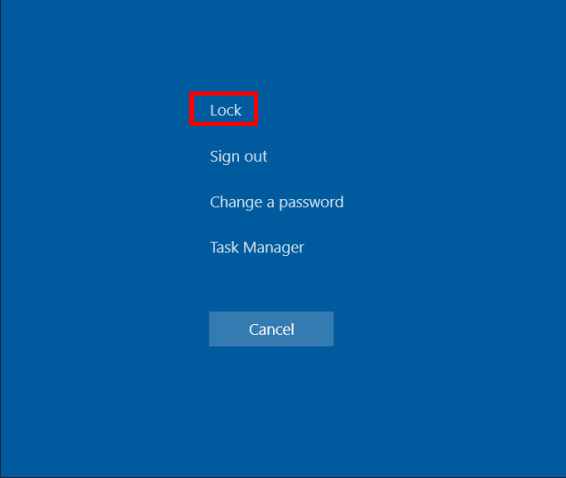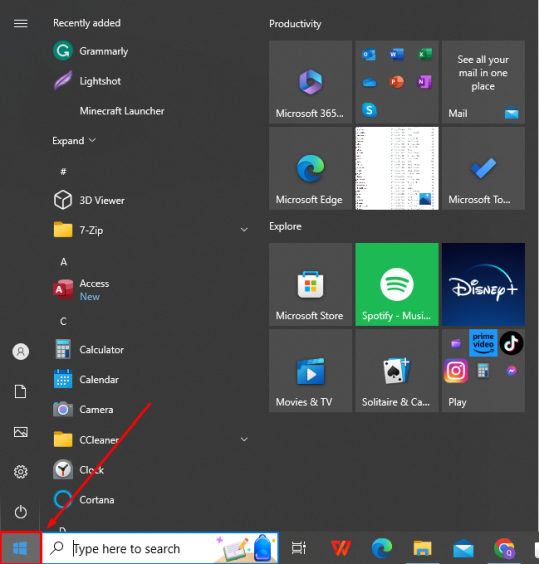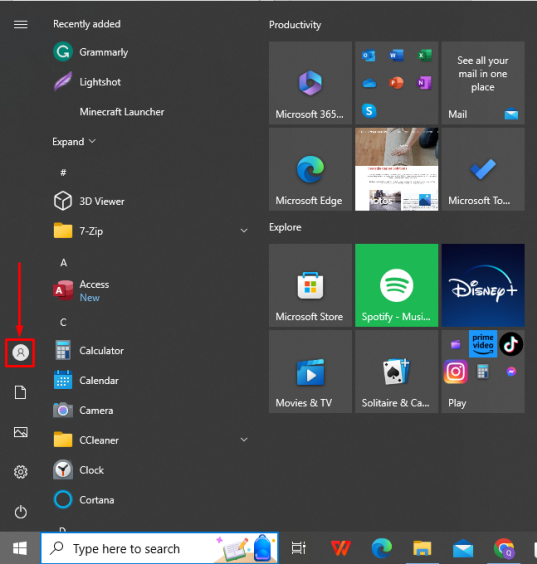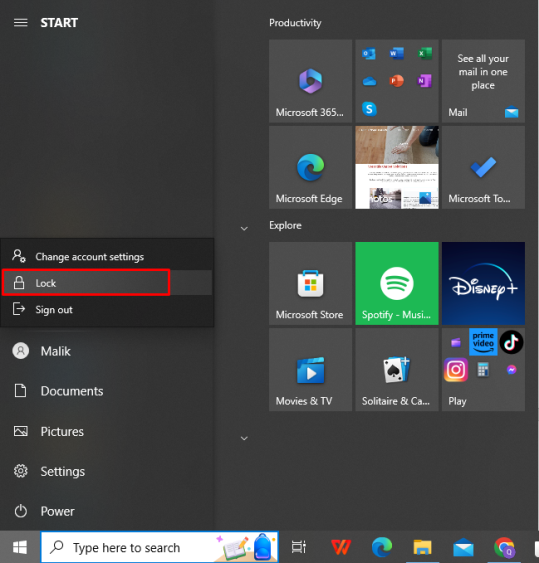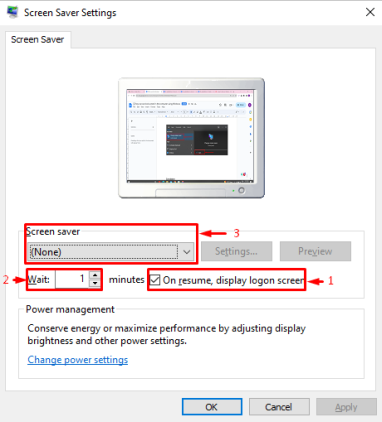В быстро развивающемся мире технологий и бизнеса наука о данных превратилась в важнейшую область, которая позволяет организациям принимать решения, основанные на данных. По мере того, как спрос на специалистов по обработке данных продолжает расти, растет и конкуренция на собеседованиях в области науки о данных. Чтобы помочь вам подготовиться к вашему следующему собеседованию по науке о данных, мы составили полный набор вопросов для интервью по науке о данных, которые охватывают широкий спектр тем и концепций в области науки о данных.
Независимо от того, являетесь ли вы опытным специалистом по обработке данных, желающим освежить свои знания, или новичком, ищущим совета о том, чего ожидать от собеседования по науке о данных, эта статья станет для вас незаменимым ресурсом. Мы подготовили список вопросов, которые охватывают различные области, включая статистику, машинное обучение, анализ данных и многое другое. Каждый вопрос сопровождается подробным ответом, чтобы убедиться, что вы не только знаете правильный ответ, но и понимаете лежащие в его основе концепции.
Приготовьтесь углубиться в такие темы, как проверка гипотез, регрессионный анализ, разработка функциональных возможностей и оценка модели. Кроме того, мы рассмотрим основные инструменты и библиотеки для науки о данных, такие как Python, R, pandas, scikit-learn и TensorFlow. К концу этой статьи вы будете хорошо подготовлены к решению даже самых сложных вопросов для собеседования по науке о данных.
Часто задаваемые вопросы для интервью по науке о данных
Вот список вопросов для интервью по науке о данных вместе с ответами на них:
1. Что такое наука о данных и чем она отличается от традиционного анализа данных? Наука о данных — это междисциплинарная область, которая использует научные методы, алгоритмы, процессы и системы для извлечения знаний и инсайтов из структурированных и неструктурированных данных. Это выходит за рамки традиционного анализа данных, поскольку включает машинное обучение, статистическое моделирование и обработку данных для решения сложных проблем, составления прогнозов и выработки рекомендаций.
2. Объясните процесс обработки данных. Процесс обработки данных обычно включает следующие этапы:
- Определение проблемы: Четко определите проблему и цели.
- Сбор данных: Соберите соответствующие данные из различных источников.
- Очистка и предварительная обработка данных: очистка, форматирование и преобразование данных.
- Исследовательский анализ данных (EDA): исследуйте и визуализируйте данные, чтобы получить представление.
- Разработка функциональных возможностей: создание новых функций или преобразование существующих.
- Выбор модели и обучение: Выбирайте и обучайте подходящие модели машинного обучения.
- Оценка модели: Оцените производительность модели с помощью метрик.
- Развертывание: развертывание моделей для получения прогнозов или инсайтов.
- Мониторинг и обслуживание: Постоянный мониторинг и обновление моделей по мере необходимости.
3. В чем разница между обучением под присмотром и без присмотра?
- Контролируемое обучение: При контролируемом обучении алгоритм обучается на помеченных данных, где каждая точка данных имеет соответствующую цель или метку. Цель состоит в том, чтобы изучить отображение входных данных на выходные, сделав его пригодным для таких задач, как классификация и регрессия.
- Неконтролируемое обучение: неконтролируемое обучение имеет дело с немаркированными данными. Алгоритм исследует внутреннюю структуру данных, выявляя закономерности, кластеры или взаимосвязи между точками данных. Распространенные методы включают кластеризацию и уменьшение размерности.
4. Что такое переобучение и как его можно предотвратить в моделях машинного обучения? Переобучение происходит, когда модель машинного обучения исключительно хорошо работает с обучающими данными, но плохо с невидимыми данными. Для предотвращения переобучения:
- Используйте больше обучающих данных, чтобы предоставить разнообразный набор примеров.
- Упростите модель за счет уменьшения сложности (например, меньшего количества функций или более мелких нейронных сетей).
- Применяйте методы регуляризации (например, регуляризацию L1 / L2).
- Используйте перекрестную проверку для оценки производительности модели.
- Соберите более релевантные функции или данные.
5. Объясните термины «точность» и «отзыв» в контексте моделей классификации. «Точность» и «отзыв» являются оценочными показателями для моделей классификации:
- Точность: Точность измеряет точность положительных прогнозов, сделанных моделью. Это отношение истинных положительных результатов к сумме истинных положительных результатов и ложных положительных результатов. Точность необходима, когда важно минимизировать ложноположительные результаты.
- Отзыв: Отзыв (чувствительность) измеряет способность модели идентифицировать все соответствующие экземпляры в наборе данных. Это отношение истинно положительных результатов к сумме истинно положительных результатов и ложноотрицательных результатов. Отзыв имеет решающее значение, когда важно минимизировать ложноотрицательные результаты.
6. Что такое перекрестная проверка и почему она используется в машинном обучении? Перекрестная проверка — это метод, используемый для оценки производительности модели машинного обучения путем разделения набора данных на несколько подмножеств (фолдов). Модель обучается и оценивается несколько раз, причем каждый раз она служит как обучающим, так и тестирующим набором. Перекрестная проверка помогает в:
- Предоставление более надежной оценки производительности модели.
- Снижение риска переобучения путем оценки модели на разных подмножествах данных.
- Более эффективное использование имеющихся данных, особенно когда они ограничены.
7. В чем заключается проклятие размерности и как это влияет на модели машинного обучения? Проклятие многомерности относится к вызовам и проблемным областям, возникающим при работе с многомерными данными. Оно влияет на модели машинного обучения следующим образом:
- Увеличивается вычислительная сложность и время, необходимое для обучения.
- Причина разреженности, когда точки данных становятся более удаленными друг от друга в многомерном пространстве, что затрудняет поиск значимых закономерностей.
- Это приводит к переоснащению, когда количество функций намного превышает количество точек данных.
- Для решения этих проблем требуются методы уменьшения размерности, такие как анализ главных компонентов (PCA) или выбор функций.
8. Каковы ключевые компоненты архитектуры нейронной сети? Ключевые компоненты архитектуры нейронной сети включают:
- Уровень ввода: предоставляет функции ввода данных.
- Скрытые слои: слои между входным и выходным слоями, которые выполняют вычисления и преобразования объектов.
- Функции активации: нелинейные функции, применяемые к выходам нейронов в скрытых слоях.
- Веса и предвзятости: параметры, которые сеть изучает во время обучения.
- Уровень вывода: создает окончательные прогнозы или классификации.
- Функция потерь: измеряет разницу между прогнозируемыми и фактическими значениями (используется для оптимизации).
- Оптимизатор: алгоритм, который обновляет веса и отклонения, чтобы минимизировать потери.
- Методы регуляризации: такие методы, как отсев или регуляризация L1 / L2, предотвращают переобучение.
9. Что такое ROC-кривая и какую информацию она предоставляет в двоичной классификации? Кривая рабочей характеристики приемника (ROC) представляет собой графическое представление производительности модели двоичной классификации. В нем показан компромисс между частотой истинных положительных результатов (TPR или отзыв) и частотой ложноположительных результатов (FPR) при различных пороговых значениях. Площадь под кривой ROC (AUC-ROC) количественно определяет общую производительность модели. Более высокий AUC-ROC указывает на лучшую дискриминацию между двумя классами, в то время как у случайного классификатора AUC-ROC равен 0,5.
10. Объясните термин «компромисс между смещением и дисперсией» в контексте машинного обучения. Компромисс между предвзятостью и отклонениями является фундаментальной концепцией машинного обучения:
- Предвзятость: Высокая предвзятость указывает на то, что модель слишком проста и недостаточно соответствует данным. Она не улавливает лежащие в ее основе закономерности, что приводит к низкой точности как обучающих, так и тестовых данных.
- Дисперсия: Высокая дисперсия означает, что модель чрезмерно сложна и не подходит для обучающих данных. Она учитывает шум в данных и хорошо работает на обучающем наборе, но плохо на невидимых данных.
- Компромисс заключается в нахождении сложности модели, которая уравновешивает предвзятость и дисперсию для достижения хорошей производительности обобщения.
11. Что такое разработка функциональных возможностей и почему она важна в машинном обучении? Разработка объектов — это процесс выбора, создания или преобразования объектов (переменных) в наборе данных для повышения производительности модели машинного обучения. Это важно, потому что хорошо спроектированные функции могут сделать модели более эффективными, выделяя релевантную информацию и уменьшая шум.
12. Объясните разложение среднеквадратичной ошибки (MSE) на отклонения в контексте регрессионных моделей. Декомпозиция смещения-дисперсии MSE показывает, что ожидаемая квадратическая ошибка модели может быть разложена на три составляющие:
- Предвзятость ^ 2: измеряет ошибку, вызванную упрощениями или допущениями модели.
- Дисперсия: измеряет ошибку, обусловленную чувствительностью модели к изменениям в обучающих данных.
- Неустранимая ошибка: представляет собой шум или случайность, присущие данным.
13. Какова цель регуляризации в машинном обучении и чем регуляризация L1 отличается от регуляризации L2? Регуляризация используется для предотвращения переобучения путем добавления штрафного члена к функции потерь модели. Регуляризация L1 (Lasso) добавляет абсолютные значения коэффициентов в качестве штрафа, поощряя выбор функций. Регуляризация L2 (Ridge) добавляет квадраты значений коэффициентов, поощряя меньшие, но ненулевые коэффициенты.
14. В чем заключается проклятие размерности и как это влияет на алгоритмы кластеризации? Проклятие размерности относится к проблемам работы с многомерными данными, таким как разреженное распределение данных и повышенная вычислительная сложность. При кластеризации это может привести к снижению качества кластера и увеличению расстояний между точками данных, что затруднит поиск значимых кластеров.
15. Объясните разницу между пакетным градиентным спуском, стохастическим градиентным спуском и минипакетным градиентным спуском.
Пакетный градиентный спуск: вычисляет градиент всего обучающего набора данных за один шаг перед обновлением параметров модели. Это дорого с точки зрения вычислений, но обеспечивает точные обновления.
- Стохастический градиентный спуск (SGD): обновляет параметры модели после обработки каждого отдельного обучающего примера. Он эффективен в вычислительном отношении, но может иметь высокую дисперсию при обновлении параметров.
- Мини-пакетный градиентный спуск: вычисляет градиенты и обновляет параметры, используя подмножество (мини-пакет) обучающих данных. Он обеспечивает баланс эффективности и точности и широко используется на практике.
16. Что такое кривые точного запоминания и как они используются для оценки моделей бинарной классификации? Кривые точности и отзыва — это графические представления производительности модели в двоичной классификации. Они показывают компромисс между точностью и отзывом при различных порогах вероятности. Кривые точного запоминания полезны при работе с несбалансированными наборами данных, предоставляя представление о способности модели делать правильные положительные прогнозы при минимизации ложноположительных результатов.
17. Что такое K-кратный метод перекрестной проверки и почему он предпочтительнее простого разделения обучающих тестов? K-кратная перекрестная проверка включает в себя разделение набора данных на K подмножеств (сгибов) и использование каждого сгиба в качестве набора для проверки при обучении на оставшихся K-1 сгибах. Этот процесс повторяется K раз, и результаты усредняются. Это обеспечивает более надежную оценку производительности модели по сравнению с разделением одного обучающего теста, поскольку использует несколько наборов проверки, снижая риск переобучения и недообучения.
18. В чем разница между пакетированием и повышением в обучении в ансамбле?
- Пакетирование (Bootstrap Aggregating): Пакетирование — это метод ансамбля, который включает в себя независимое обучение нескольких базовых моделей на загрузочных выборках обучающих данных. Это уменьшает дисперсию и может улучшить стабильность и обобщенность модели.
- Бустинг: Бустинг — это метод ансамбля, при котором базовые модели обучаются последовательно, и каждая модель фокусируется на примерах, которые предыдущие модели сочли сложными. Это уменьшает предвзятость и может повысить точность модели, но может быть более чувствительным к зашумленным данным.
19. Каковы преимущества и недостатки использования деревьев решений в машинном обучении?
- Преимущества: Деревья принятия решений просты в интерпретации, обрабатывают как категориальные, так и числовые данные и требуют минимальной предварительной обработки данных. Они могут фиксировать нелинейные взаимосвязи и устойчивы к выбросам.
- Недостатки: Деревья принятия решений могут легко перегружать зашумленные данные, подвержены нестабильности и могут плохо обобщаться. Они могут создавать сложные деревья, которые приводят к высокой дисперсии.
20. Что такое предвзятость при перекрестной проверке и как ее можно уменьшить? Предвзятость при перекрестной проверке возникает, когда результаты перекрестной проверки систематически искажаются, что приводит к чрезмерно оптимистичным или пессимистичным оценкам эффективности. Этого можно избежать, используя такие методы, как стратифицированная выборка, повторная перекрестная проверка или вложенная перекрестная проверка, чтобы гарантировать, что процесс разделения данных является беспристрастным и репрезентативным для характеристик набора данных.
21. Объясните концепцию несбалансированных наборов данных при классификации и как вы можете решить эту проблему? Несбалансированные наборы данных имеют неравномерное распределение по классам, причем один класс значительно превосходит другие. Чтобы решить эту проблему, вы можете:
- Повторная выборка: избыточная выборка класса меньшинства или недостаточная выборка класса большинства, чтобы сбалансировать распределение по классам.
Используйте различные показатели оценки: вместо точности используйте такие показатели, как точность, отзыв, оценка F1 или площадь под кривой ROC (AUC-ROC), которые учитывают несбалансированность данных.
- Генерируйте синтетические данные: используйте такие методы, как Synthetic Minority Over-sampling Technique (SMOTE), для создания синтетических выборок для класса меньшинств.
22. Какова цель потери кросс-энтропии в логистической регрессии и как она вычисляется? Потеря кросс-энтропии (log loss) измеряет несоответствие между прогнозируемыми вероятностями и фактическими метками в логистической регрессии. Она количественно определяет погрешность прогнозируемых вероятностей. Формула потери двоичной кросс-энтропии такова: -Σ(y log (p) + (1 – y) log (1 – p)), где y — фактическая метка (0 или 1), а p — прогнозируемая вероятность.
23. Объясните концепцию уменьшения размерности в науке о данных и назовите популярный метод уменьшения размерности. Уменьшение размерности — это процесс уменьшения количества объектов (измерений) в наборе данных при сохранении соответствующей информации. Популярным методом является анализ главных компонент (PCA), который преобразует данные в новый набор ортогональных переменных (главных компонентов), которые фиксируют наиболее значительные отклонения в данных.
24. Что такое показатель ROC-AUC и почему он полезен при оценке моделей бинарной классификации? Показатель ROC-AUC (рабочая характеристика приемника – площадь под кривой) количественно определяет способность модели различать положительные и отрицательные классы. Он предоставляет единственное скалярное значение, которое представляет общую производительность модели, независимо от выбранного порога. Более высокий ROC-AUC указывает на лучшую производительность классификации.
25. Что такое гиперпараметры в машинном обучении и чем они отличаются от параметров модели? Гиперпараметры — это параметры конфигурации, которые управляют поведением модели машинного обучения во время обучения, но не извлекаются из данных. Примеры включают скорость обучения, силу регуляризации и количество деревьев в случайном лесу. Параметры модели, с другой стороны, извлекаются из данных во время обучения и включают веса и отклонения в нейронных сетях или коэффициенты линейной регрессии.
Заключение
В мире науки о данных продвигаться по карьерной лестнице означает постоянно совершенствовать свои знания и навыки. Подготовка к собеседованиям по науке о данных — важнейший шаг на этом пути. Мы надеемся, что эта подборка вопросов для интервью по науке о данных стала ценным ресурсом для вашей подготовки к собеседованию.
Помните, что собеседования — это не просто предоставление правильных ответов; это также возможность продемонстрировать свои способности к решению проблем, понимание концепций науки о данных и навыки общения. Практикуйтесь, просматривайте и уточняйте свои ответы на эти вопросы, чтобы представить себя всесторонне развитым специалистом по обработке данных, который может преуспеть в динамичной индустрии, основанной на данных.
Разбираясь в тонкостях интервью по науке о данных, всегда оставайтесь любознательными и открытыми для обучения. Эта область постоянно развивается, и ваша способность адаптироваться и расти выделит вас среди других. Желаю удачи в вашем собеседовании по науке о данных, и пусть ваша карьера продолжает процветать в этой захватывающей и результативной области.
Часто задаваемые вопросы, связанные с вопросами для интервью по науке о данных
Вопрос 1: Какие темы затронуты в этой подборке вопросов для интервью по науке о данных? Эта подборка охватывает широкий круг тем, имеющих отношение к науке о данных, включая статистику, машинное обучение, анализ данных, языки программирования (такие как Python и R), визуализацию данных и многое другое. Вопросы предназначены для оценки ваших знаний и профпригодности в различных аспектах данной области.
Вопрос 2: Как я могу наилучшим образом использовать эти вопросы для подготовки к собеседованию по науке о данных? Начните с тщательного рассмотрения каждого вопроса и сопровождающего его ответа. Убедитесь, что вы понимаете концепции и принципы, лежащие в основе каждого вопроса. Потренируйтесь отвечать на эти вопросы устно или письменно, чтобы улучшить свою речь и навыки решения проблем. Кроме того, рассмотрите возможность использования этих вопросов в качестве основы и дополните свою подготовку практическими проектами по кодированию и анализу данных.
Вопрос 3: Подходят ли эти вопросы для интервью как новичкам, так и опытным специалистам по обработке данных? Да, эти вопросы для интервью рассчитаны на широкую аудиторию. Новички могут использовать их в качестве учебного пособия для получения представления о концепциях науки о данных, в то время как опытные специалисты по обработке данных могут использовать их для обновления своих знаний и подготовки к собеседованиям на различных уровнях, включая младшие, средние и старшие должности.
Вопрос 4: Могу ли я использовать эти вопросы для подготовки к техническим собеседованиям с оценкой кодирования? Хотя некоторые из этих вопросов могут быть применимы к оценке кодирования, этот сборник в первую очередь посвящен концептуальным и теоретическим аспектам науки о данных. Чтобы подготовиться к техническим собеседованиям с оценками кодирования, желательно дополнить свою подготовку задачами по кодированию и проектами, которые включают анализ реальных данных и задачи машинного обучения.
Вопрос 5: Насколько важна подготовка к собеседованию в области науки о данных? Подготовка к собеседованию имеет решающее значение в науке о данных, поскольку она не только помогает вам продемонстрировать свой опыт, но и позволяет продемонстрировать навыки решения проблем и коммуникативные способности. Конкуренция за должности в области науки о данных может быть напряженной, поэтому тщательная подготовка может значительно увеличить ваши шансы на успех.
2023-10-13T14:52:37
Бизнес



